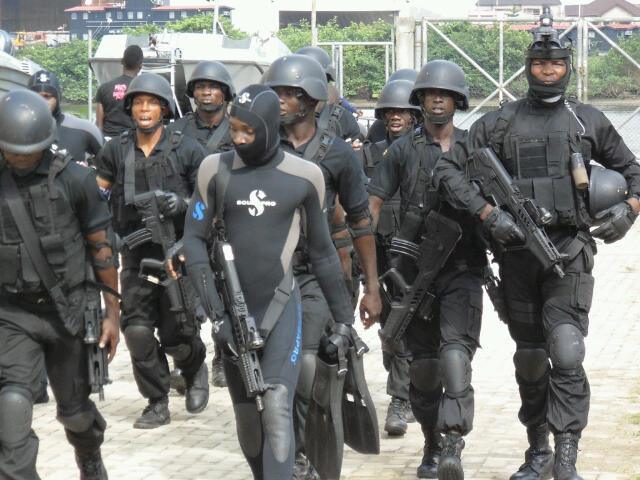Nigeria Navy has said that the country needs a robust, effective and integrated maritime patrol and surveillance system singly and in conjunction with efforts of other security agencies and maritime stakeholders to curb the myriad of insecurity in Nigeria’s maritime domain.
Speaking in a paper titled “Defence of maritime resources and infrastructure catalysts for economic development: Global efforts, role of the Nigerian Navy, ” at the 2015 annual lecture investiture and award ceremony organised by the Certified Institute of Shipping of Nigeria (CISN), Flag Officer Commanding, Western Naval Command, Rear Admiral Raphael Osundu, said that maritime security would involve other nations in the Gulf of Guinea. According to him, collaborative and cooperative efforts involving ships and air assets for interdiction remain the answer to curbing maritime insecurity in order to enhance economic development.
He explained that without security there could be no development. Osundu noted: “No nation can singly combat these vices, hence the need for subregional, regional and global cooperation in the areas of information and intelligence sharing, exercises, operations, seminars and workshops.
“We shall remain undaunted of inherent challenges as we strive to evolve smarter maritime policing measures and establish robust technology- based monitoring and detection systems to curb maritime insecurity for sustainable national development.”
He commended the management of CISN and its Rector, Professor Alex Okwuashi, for maintaining the high standard for which the institute is renowned.
“I believe that you are all active drivers of these high standards and therefore, I expect a robust, frank and meaningful interaction on the subject,” he noted.
He said that the threats that constituted security challenges in Nigeria’s maritime domain were due to both internal and external factors.
Osundu listed the security challenges as including crude oil theft, illegal bunkering, piracy, sea robbery, smuggling, illegal arms trade, drug and human trafficking and illegal unreported and unregulated fishing.
“The maritime environment is also susceptible to threats such as communal agitations, insurgency, pollution and terrorism among others. These threats translate into security challenges within Nigeria’s maritime domain which place demands on the Navy to secure the Sea Lanes of Communication, protection of oil and gas infrastructure with an estimated value in billions of dollars, ensure freedom of commerce and oil exploration as well as sustaining credible presence and vigilance following marked increase in military activities of extra regional powers in the Gulf of Guinea.
“Nigeria currently experiences some form of insecurity in the maritime environment with great potential of impacting negatively on economic development. Principal among them include crude oil theft, pipeline vandalism, hijack of ships, kidnapping, piracy and sea robbery.”In curbing these maritime security challenges, the strategic goal of the Nigerian Navy is to reposition the service for enhanced efficiency aimed at achieving and sustaining effective capacity.
“This is to enable the Nigerian Navy carry out her statutory roles towards curbing insecurity in the maritime domain for enhanced economic development,” he said.
Osundu said that in discharging its statutory roles, the navy is confronted with a number of challenges such as platform availability, inter-agency cooperation, research and development, industrial capacity and funding.
Copyright Ships & Ports Ltd. Permission to use quotations from this article is granted subject to appropriate credit given to www.shipsandports.com.ng as the source.

